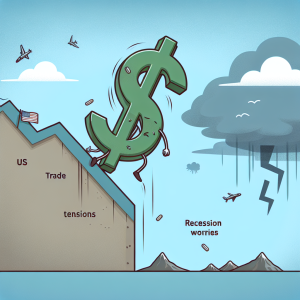As Singapore prepares for its upcoming election on May 3, citizens are increasingly focused on pressing issues such as the cost of living and trade concerns. The government, led by the People’s Action Party (PAP), faces scrutiny as rising prices and economic uncertainties shape the political landscape. With inflation impacting daily expenses, voters are expected to prioritize economic stability and affordability in their decision-making.
The cost of living has become a significant concern for many Singaporeans. Recent surveys indicate that a substantial number of voters view economic conditions as a primary motivator for participating in elections. This trend mirrors global patterns observed in various democracies, where economic pressures have led to increased political engagement. In Singapore, the rising costs of essentials like groceries and housing are prompting discussions about the effectiveness of current economic policies and the government’s ability to address these challenges.
Moreover, consumer behavior is evolving in response to these economic pressures. According to the PwC 2024 Voice of the Consumer Survey, despite inflation, there is a notable willingness among consumers to pay a premium for sustainably produced goods. This shift indicates that while affordability remains a priority, many Singaporeans are also considering the environmental impact of their purchases. This dual focus presents a challenge for businesses and policymakers as they strive to balance economic growth with sustainability.
Economic Pressures and Trade Concerns
In addition to domestic issues, Singapore’s trade environment is under scrutiny. The country, known for its strategic location and robust trade networks, is facing headwinds from global economic uncertainties. Trade disruptions and fluctuating commodity prices add layers of complexity to the economic landscape. Policymakers are tasked with formulating strategies that not only address immediate cost-of-living concerns but also ensure long-term economic resilience.
The upcoming election serves as a crucial platform for candidates to address these intertwined issues. Voters are likely to seek clarity on how proposed policies will tackle inflation, support local businesses, and enhance Singapore’s competitive edge in the global market. As the election date approaches, the focus on economic stability and consumer priorities will likely shape campaign narratives and voter turnout.
In conclusion, Singapore’s May 3 election comes at a pivotal moment when economic pressures are front and center in the minds of voters. With the cost of living and trade concerns influencing political engagement, the outcome will depend on how effectively candidates can resonate with the electorate’s needs and aspirations. As Singapore navigates this complex economic landscape, the election results could have lasting implications for its social and economic policies.





